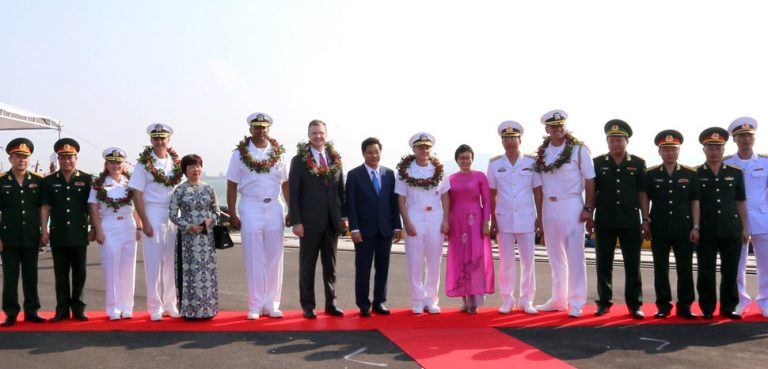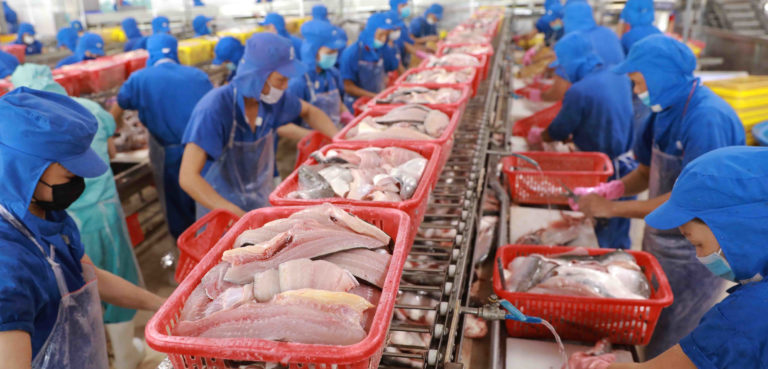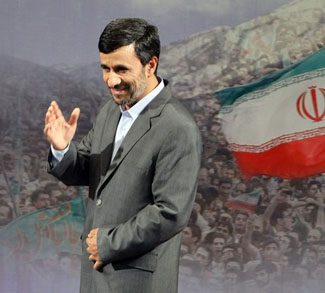Vietnam General Secretary To Lam’s visit to the UN General Assembly in New York presents a crucial opportunity to strengthen US-Vietnam relations and engage directly with President Biden. The trip may serve to highlight the significance of last year’s historic Comprehensive Strategic Partnership agreement and explore further avenues for cooperation between the two nations.
President Joe Biden has praised the growing US-Vietnam relationship and also extended his congratulations to President To Lam on his election as General Secretary, expressing optimism about the new chapter in Vietnam’s leadership. He emphasized that this development would serve to deepen and further solidify the strong, dynamic partnership between the United States and Vietnam. In his remarks, he highlighted the growing importance of mutual cooperation, particularly in tackling shared global challenges and seizing emerging opportunities. This new phase of leadership, Biden noted, presents a valuable chance for both nations to enhance their strategic ties and collaborate on key issues such as economic growth, regional security, trade, and climate change.
The depth of cooperation and mutual understanding now encompasses diplomacy, clean energy transition, education, dioxin cleanup from the war, MIA remains recovery, public health, Mekong Delta water issues, and South China Sea maritime security.
With the approaching US general election and Vietnam’s newly installed General Secretary To Lam, it’s timely to reassess the common and strategic bridges between the two countries. Vice President Kamala Harris, the Democratic Party presidential party candidate, has been quick to acknowledge Vietnam’s crucial role in the region as a strategic partner and US ally. Despite the differences in political systems and ideologies, the United States has embarked on a campaign of building upon the existing goodwill and trust between Hanoi and Washington.
This economic relationship has developed both cautiously and significantly after Vietnam’s normalization, when Washington lifted its economic embargo against Vietnam in 1994.
Progress in US-Vietnam trade, driven by a foundation of peace, deserves full recognition. From the lifting of the embargo to Vietnam’s accession to the World Trade Organization in 2007, pivotal milestones have spurred US investment and strengthened trade relations with Vietnam. Efforts to address Vietnam War legacies, such as unexploded ordnance and the lingering effects of Agent Orange, have also been crucial. These initiatives, notably supported by US Senator Patrick Leahy, have played a significant role in fostering stronger US-Vietnam ties.
Under Vice President Harris, it’s unlikely that the trajectory of US-Vietnam relations would shift significantly. The outcome of the 2024 presidential election could have a major impact on America’s international relationships, especially with strategic partners like Vietnam, affecting tariffs and trade agreements. During former President Donald Trump’s administration, the United States withdrew from the Trans-Pacific Partnership (TPP) and adopted a more anti-globalist and anti-free trade posture.
Globalization widening market reforms
Vietnam’s economy, valued at $453 billion, has experienced rapid growth since 2011, driven by its socialist market system. Manufacturing and processing, which account for 30% of its output, have played a key role, with foreign investment fueling exports ranging from shoes to smartphones.
Globalization plays a pivotal role in foreign investment, as seen in the case of Nike’s manufacturing plants in Vietnam, which employ more than 530,000 young women. The influx of foreign direct investment has brought significant benefits to the country, including a sharp reduction in poverty, rising living standards, and increased life expectancy. Vietnam’s current GDP per capita stands at $4,622, highlighting the positive economic impact of this investment.
US manufacturing is also a huge beneficiary of Vietnam’s engine of growth. Last year, during President Biden’s visit in Hanoi, Vietnamese companies signed contracts in excess of $10 billion to buy 50 737 Max jets from Boeing, with handover scheduled for 2027-2030. The landmark deal is expected to support more than 30,000 jobs in the United States.
Moreover, the annual Economic Dialogue at the Deputy Ministers level, held in June 2024, played a pivotal role in advancing US-Vietnam relations by fostering deeper economic cooperation. The dialogue focused on key areas such as supply chain resilience and technology collaboration, addressing shared priorities and challenges between the two nations. The discussions aimed at aligning economic policies and exploring new opportunities for bilateral growth, underscoring the importance of economic diplomacy in the evolving partnership.
US-Vietnam Bilateral Challenges
The US-Vietnam relationship, while strengthening in many areas, continues to face challenges, particularly in economic and trade sectors. The United States has increased its anti-dumping and anti-subsidy investigations into certain Vietnamese exports, creating tensions between the two nations. Additionally, Vietnam remains on the U.S. currency manipulation monitoring list, reflecting concerns over its exchange rate policies. The U.S. has also yet to recognize Vietnam as a market economy, a point of contention for Hanoi. These issues complicate trade negotiations and bilateral economic growth.
Moreover, human rights concerns persist as a sensitive topic in US-Vietnam relations. The U.S. frequently raises issues of freedom of expression, labor rights, and political dissent, while Vietnam views these as internal matters. These divergent perspectives create friction, particularly in the broader context of deepening ties, where economic and strategic cooperation is thriving, but political and human rights issues remain sticking points that could affect long-term diplomatic progress.
Nevertheless, the U.S. continues to play a crucial role in supporting Vietnam’s efforts to combat the coronavirus and respond to natural disasters, including last week’s Typhoon Yagi. During the pandemic, the U.S. provided Vietnam with millions of vaccine doses through the COVAX initiative, along with medical supplies, testing kits, and financial aid to strengthen its healthcare system.
In response to the worst typhoon in 30 years, the U.S. worked closely with Vietnam through humanitarian assistance programs, providing emergency relief supplies, technical expertise, and support for recovery efforts. This collaboration highlights the strong partnership between the two nations in addressing health crises and disaster resilience.
Furthermore, the more than 21,000 young Vietnamese studying in the U.S. and the 600 Vietnamese who have been selected as Fulbright scholars reaffirms the increased educational linkages between America and Vietnam. A showpiece for the educational cooperation between the two countries is the success of Fulbright University in HCMC, one of Vietnam’s first private, nonprofit institutions of higher education.
Defense and Security Cooperation
The recent visit by Vietnam Minister of Defense Phan Van Giang to Washington on September 9, 2024, holds significant importance for the growing US-Vietnam security partnership. The visit aimed to enhance defense cooperation between the two nations, focusing on areas such as maritime security, defense modernization, and peacekeeping operations. It also underscored the importance of maintaining regional stability, particularly in the South China Sea, where both countries share concerns over freedom of navigation and international law.
Even in the context of Hanoi’s declared “Four Nos” policy: no military alliances, no forward bases, no aligning with a second country against a third, and no use of force in international relations, Washington has prioritized bilateral maritime assistance by providing four new coast guard patrol vessels, aerial surveillance drones, coastal radar, and two decommissioned U.S. Coast Guard Hamilton Class cutters. All this fits in with the current White House administration’s policy of helping Vietnam fostering its maritime capability.
Finally, the construction of a new $1.2 billion US Embassy in Hanoi marks a significant step in strengthening diplomatic, economic, and strategic relations between the United States and Vietnam. This major investment highlights Vietnam’s growing importance in US foreign policy, especially within Washington’s Indo-Pacific strategy.
James Borton is a non-resident senior fellow at Johns Hopkins/SAIS Foreign Policy Institute and the author of Dispatches from the South China Sea: Navigating to Common Ground.
The views expressed in this article belong to the author(s) alone and do not necessarily reflect those of Geopoliticalmonitor.com.




